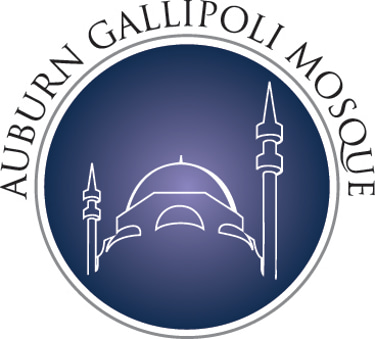Islam & Muslims
The name of this religion is Islam, the root of which is Silm and Salam, which means peace. Salam may also mean greeting one another with peace. One of the beautiful names of God is that He is the Peace. It means more than that - submission to the One God, and to live in peace with the Creator, within one's self, with other people and with the environment. Thus, Islam is a total system of living. A Muslim is supposed to live in peace and harmony with all these segments, hence a Muslim is any person anywhere in the world whose obedience, allegiance, and loyalty are to God, the Lord of the Universe.
Muslims are from diverse racial and national backgrounds
The followers of Islam are called Muslims. Muslims are not to be confused with Arabs. Muslims may be Arabs, Turks, Persians, Indians, Pakistanis, Malays, Indonesians, Europeans, Africans, Americans, Chinese, or other nationalities.
An Arab could be a Muslim, a Christian, a Jew or an atheist. Any person who adopts the Arabic language is called an Arab. However, the language of the Qur'an (the Holy Book of Islam) is Arabic. Muslims all over the world try to learn Arabic so that they may be able to read the Qur'an and understand its meaning from the original text. They pray in the language of the Qur'an, namely Arabic. Supplications to God could be in any language.
While there are more than one billion Muslims in the world, there are about 200 million Arabs. Among them, approximately ten percent are not Muslims. Thus Arab Muslims constitute only about twenty percent of the Muslim population of the world.
Allah, the One and the Only God
Allah is the name of the One and Only God. Allah has ninety-nine beautiful names, such as: The Gracious, The Merciful, The Beneficent, The Creator, The All-Knowing, The All Wise, The Lord of the Universe, The First, The Last, and others. These are titles that tell us about who God is.
He is the Creator of all human beings. He is the God for the Christians, the Jews, the Muslims, the Buddhists, the Hindus, the atheists, and others. Muslims worship God whose name is Allah. They believe in His existence, worship Him, put their trust in Him and they seek His help and His guidance.
God in Islam is unlike any of His creation. Therefore, God is not male or female nor does God have any human or physical image. Sometimes the word "He" is used for God mainly as a limitation of the English language.
Muhammad
(peace & blessings be upon him)
Muhammad (pbuh) was chosen by God to deliver His Message of Peace, namely Islam. He was born in 570 C.E. (Common Era) in Makkah, Arabia. He was entrusted with the Message of Islam when he was at the age of forty years. The revelation that he received is called the Qur'an, while the message is called Islam.
Muhammad is the very last Prophet of God to mankind. He is the final Messenger of God. His message was and is still to the Christians, the Jews and the rest of mankind. He was sent to those religious people to inform them about the true mission of Jesus, Moses, David and Abraham.
Muhammad is considered to be the summation and the culmination of all the prophets and messengers that came before him. He purified the previous messages from adulteration and completed the Message of God for all humanity. He was entrusted with the power of explaining, interpreting and living the teachings of the Qur'an.
Sources of Islam
The legal sources of Islam are the Qur'an and the Hadith. The Qur'an is the exact words of God; its authenticity, originality and totality are intact. The Hadith is the report of the sayings, deeds and approvals of the Prophet Muhammad. The Prophet's sayings and deeds are called the Sunnah. The Sunnah of the Prophet Muhammad are preserved separately to the Qur'an and it provides guidance to Muslims as how Prophet Muhammad himself understood and lived Islam.
Islamic Principles
Oneness of God: He is One and the Only One. He is not two in one or three in one. This means that Islam opposes the idea of trinity or such a unity of God, which implies more than one God in one.
Oneness of mankind: People are created equal in front of the Law of God. There is no superiority for one race over another. God made us of different colours, nationalities, languages and beliefs so as to test who is going to be better than others. No one can claim that he is better than others. It is only God Who knows who is better. The only criteria for superiority is piety and righteousness.
Oneness of Messengers and the Message: Muslims believe that God sent different messengers throughout the history of mankind. All came with the same message and the same teachings. It was the people who misunderstood and misinterpreted them. Muslims believe in Noah, Abraham, Isaac, Ishmael, Jacob, Moses, David, Jesus, and Muhammad. The Prophets of Christianity and Judaism are indeed the Prophets of Islam.
Angels and the Day of Judgement: Muslims believe that there are unseen creatures such as angels created by God in the universe for special missions. Muslims believe that there is a Day of Judgement when all people of the world throughout the history of mankind till the last day of life on earth, are to be brought for accounting, reward and punishment. God's compassion comes before His justice.
Divine Destiny and Man's Independent Will: Through His Divine Will, All-Knowing God knows, affirms and preordains every activity in the Universe. Man is the only being who has freedom of choice and independent will for which he is accountable on the Day of Judgement.
Innocence of Man at Birth: Muslims believe that people are born free of sin. It is only after they reach the age of puberty and it is only after they commit sins that are to be charged for their mistakes. No one is responsible for or can take the responsibility for the sins of others. However, the door to forgiveness through true repentance is always open
Islamic Practices
God instructed Muslims to practice what they believe in. The practical aspect of Islam is designed to develop individuals and the society positively to ensure eternal happiness. In Islam there are five pillars, namely:
Creed (Shahada): The verbal commitment and pledge that there is only One God and that Muhammad is the Messenger of God, is considered to be Creed of Islam. A person becomes a Muslim after he or she professes to this creed.
Prayers (Salat): The performance of the five short daily prayers required of Muslims.
Fasting (Sawm): Fasting is total abstinence from food, liquids and intercourse (between married couples) from dawn to sunset during the Month of Ramadan.
Purifying Tax (Zakat): This is an annual payment of a certain percentage of a Muslim's property, which is distributed among the poor or other rightful beneficiaries.
Pilgrimage (Hajj): The performance of pilgrimage to Makkah is required once in a lifetime if means are available. Hajj is in part in the memory of the trials and tribulations of Prophet Abraham, his wife Hagar and his eldest son Prophet Ishmael.
Place of Worship
The place of worship is called Mosque or Masjid. There are three holy places of worship for the Muslims in the world. These are: Mosque of Ka'bah in Makkah, Mosque of the Prophet Muhammad in Madinah, and Masjid Aqsa, adjacent to Dome of the Rock in Jerusalem.
A Muslim may pray anywhere in the world whether in a Mosque, a house, an office, or outside. The whole world is a place of worship. It is preferable that Muslims pray in a congregation, however, he/she may pray individually anywhere.
The holy day of the Muslims is Friday. Muslims join together shortly after noon on Friday for the Friday congregational prayer in a Mosque. A leader (Imam) gives a sermon and leads the congregational prayer.
People from other faiths
Muslims are required to respect all those who are faithful and God conscious people, namely those who received messages. Christians and Jews are called People of the Book. Muslims are asked to call upon the People of the Book for common terms, namely, to worship One God, and to work together for the solutions of the many problems in the society.
Christians and Jews lived peacefully with Muslims throughout centuries in the Middle East and other Asian and African countries. The second Caliph Omar did not pray in the church in Jerusalem so as not to give the Muslims an excuse to take it over. Christians entrusted the Muslims and as such the key of the Church in Jerusalem is still in the hands of the Muslims.
Jews fled from Spain during the Inquisition. No other country accepted them until Ottomans welcomed them and they settled in the heart of the Islamic Caliphate in Istanbul. They enjoyed positions of power and authority.
Throughout the Muslim world, churches, synagogues and missionary schools were built within the Muslim neighbourhoods. Muslims protected these places even during the contemporary crises in the Middle East.
Auburn Gallipoli Mosque
A vibrant hub for worship and connection.
Tel: +61 2 9646 5972
Email: info@gallipolimosque.org.au
© 2024. All rights reserved.


